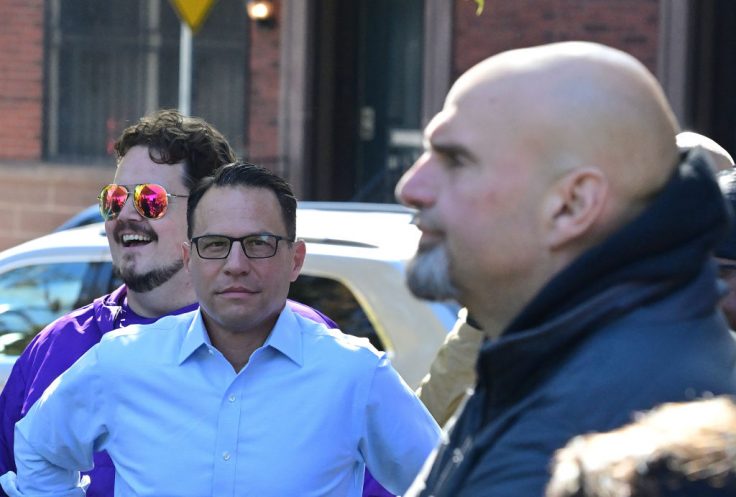Pennsylvania had one of the steepest declines in student test scores during the coronavirus pandemic, and residents may have two Democratic candidates for statewide office to thank for it.
As lieutenant governor and attorney general of Pennsylvania, respectively, John Fetterman and Josh Shapiro pushed school closures that experts say helped cause the historic slide in test scores across the country. Fetterman, who is running for Senate, said it was an "absolute necessity" early in the pandemic to shut down schools to slow the virus. Shapiro, the Democratic gubernatorial candidate, in July 2020 threatened to sue the Trump administration if the state was forced to reopen schools.
The effect of these lockdowns was laid bare Monday, when the the Department of Education released the "Nation’s Report Card." The report found that eighth-graders in the Keystone State scored 11 points lower on a math assessment compared to 2019, the seventh-biggest decline of any state and the equivalent of nearly a year’s worth of classroom learning. Fourth-graders scored six points lower on the test, the 13th-largest decrease. Reading scores also declined more than the national average but were not as steep as the losses for math, according to the report card.
The Democrats’ support for school closures could hurt them at the polls next month, as Republicans are likely to link them to Pennsylvania’s dismal test scores. Republican Senate candidate Mehmet Oz tied Fetterman to the test scores on Monday, saying Fetterman "oversaw devastating school closures in Pennsylvania that set our kids’ education back years." GOP gubernatorial candidate Doug Mastriano frequently blames Shapiro for students’ learning loss in his campaign speeches.
While Fetterman and Shapiro were not in charge of school policy, they both used their offices as bully pulpits to call for school closures and mask mandates. Fetterman said it was an "absolute necessity" early in the pandemic to shut down schools to slow the virus. He said in July 2020 that the only way to "safely reopen" schools for the fall semester was for parents to push "masking, masking, masking" in classrooms.
Shapiro in July 2020 threatened legal action against the Trump administration and Education Secretary Betsy DeVos after she threatened to pull federal funding if states did not reimpose in-school learning for Fall 2020. DeVos said the preferred policy was for kids to be "in school, in person, in the classroom."
Shapiro said that "while we have learned much about COVID-19, there is still much we do not know about how physical reopening will affect students and their families along with faculty and staff—despite Secretary DeVos’ statements to the contrary." Fetterman touted the statement on Twitter, saying, "Maybe we should keep politics out of going back to school, altogether."
Fetterman has not discussed his position on school lockdowns during his brutal Senate campaign. Shapiro disavowed some of the policies he once enforced as Pennsylvania’s top law enforcement official, telling the Associated Press in August that school and business lockdowns were "an area where I think folks got it wrong."
Fetterman’s support for lockdowns has opened him up to allegations of hypocrisy before. The Washington Free Beacon reported that he went on a family vacation to the Jersey Shore in June 2020 while supporting school and business closures.
Researchers, educators, and parents have increasingly acknowledged that school closures drastically hindered students’ education, delayed their socialization, and caused behavioral problems. Mask requirements have also been blamed for learning loss and other setbacks. According to a Politico-Harvard poll earlier this year, 40 percent of parents said masks hindered their kids’ school experience, with one-third saying their education was harmed.
